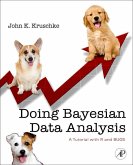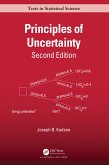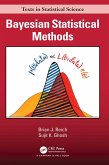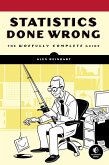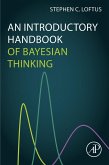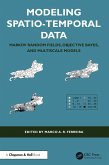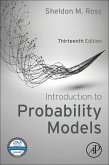The book is divided into three parts and begins with the basics: models, probability, Bayes' rule, and the R programming language. The discussion then moves to the fundamentals applied to inferring a binomial probability, before concluding with chapters on the generalized linear model. Topics include metric-predicted variable on one or two groups; metric-predicted variable with one metric predictor; metric-predicted variable with multiple metric predictors; metric-predicted variable with one nominal predictor; and metric-predicted variable with multiple nominal predictors. The exercises found in the text have explicit purposes and guidelines for accomplishment.
This book is intended for first-year graduate students or advanced undergraduates in statistics, data analysis, psychology, cognitive science, social sciences, clinical sciences, and consumer sciences in business.
- Accessible, including the basics of essential concepts of probability and random sampling
- Examples with R programming language and JAGS software
- Comprehensive coverage of all scenarios addressed by non-Bayesian textbooks: t-tests, analysis of variance (ANOVA) and comparisons in ANOVA, multiple regression, and chi-square (contingency table analysis)
- Coverage of experiment planning
- R and JAGS computer programming code on website
- Exercises have explicit purposes and guidelines for accomplishment
- Provides step-by-step instructions on how to conduct Bayesian data analyses in the popular and free software R and WinBugs
Dieser Download kann aus rechtlichen Gründen nur mit Rechnungsadresse in A, B, BG, CY, CZ, D, DK, EW, E, FIN, F, GR, HR, H, IRL, I, LT, L, LR, M, NL, PL, P, R, S, SLO, SK ausgeliefert werden.
Hinweis: Dieser Artikel kann nur an eine deutsche Lieferadresse ausgeliefert werden.
"fills a gaping hole in what is currently available, and will serve to create its own market" --Prof. Michael Lee, U. of Cal., Irvine; pres. Society for Mathematical Psych
"has the potential to change the way most cognitive scientists and experimental psychologists approach the planning and analysis of their experiments" --Prof. Geoffrey Iverson, U. of Cal., Irvine; past pres. Society for Mathematical Psych.
"better than others for reasons stylistic.... buy it -- it's truly amazin'!" --James L. (Jay) McClelland, Lucie Stern Prof. & Chair, Dept. of Psych., Stanford U.
"the best introductory textbook on Bayesian MCMC techniques" --J. of Mathematical Psych.
"potential to change the methodological toolbox of a new generation of social scientists" --J. of Economic Psych.
"revolutionary" --British J. of Mathematical and Statistical Psych.
"writing for real people with real data. From the very first chapter, the engaging writing style will get readers excited about this topic" --PsycCritiques



